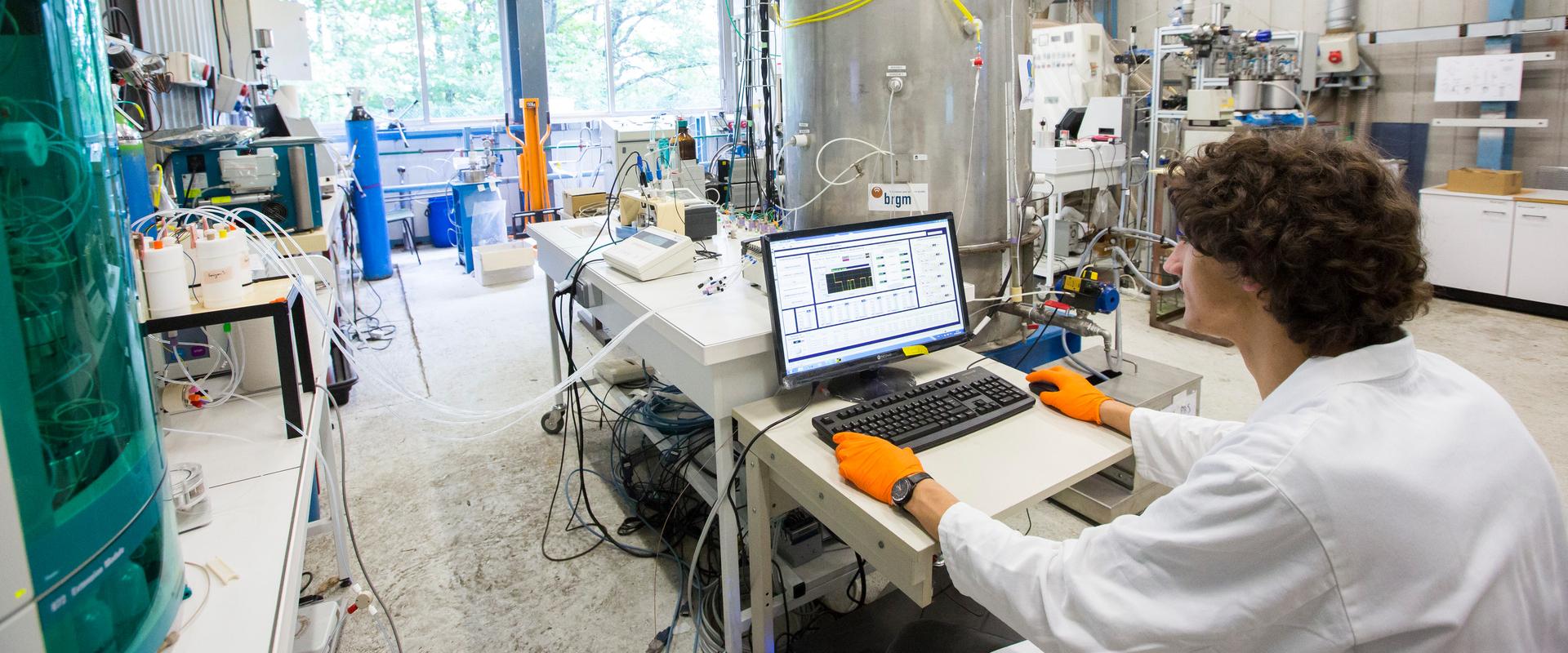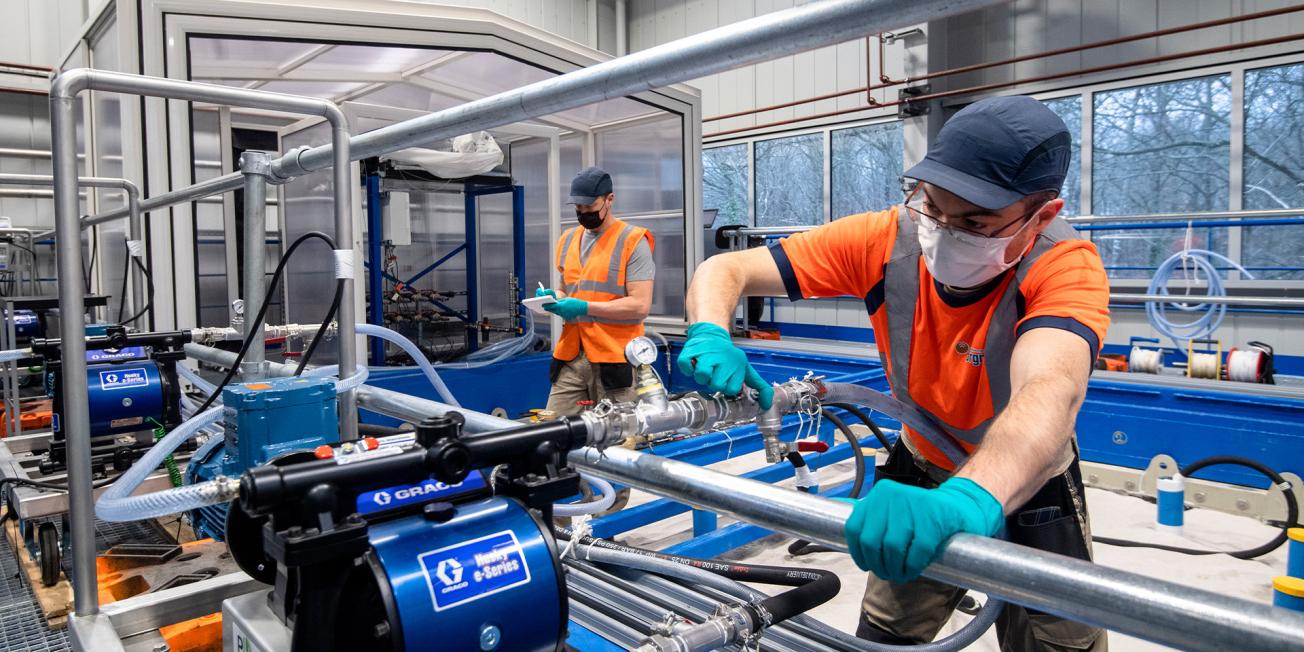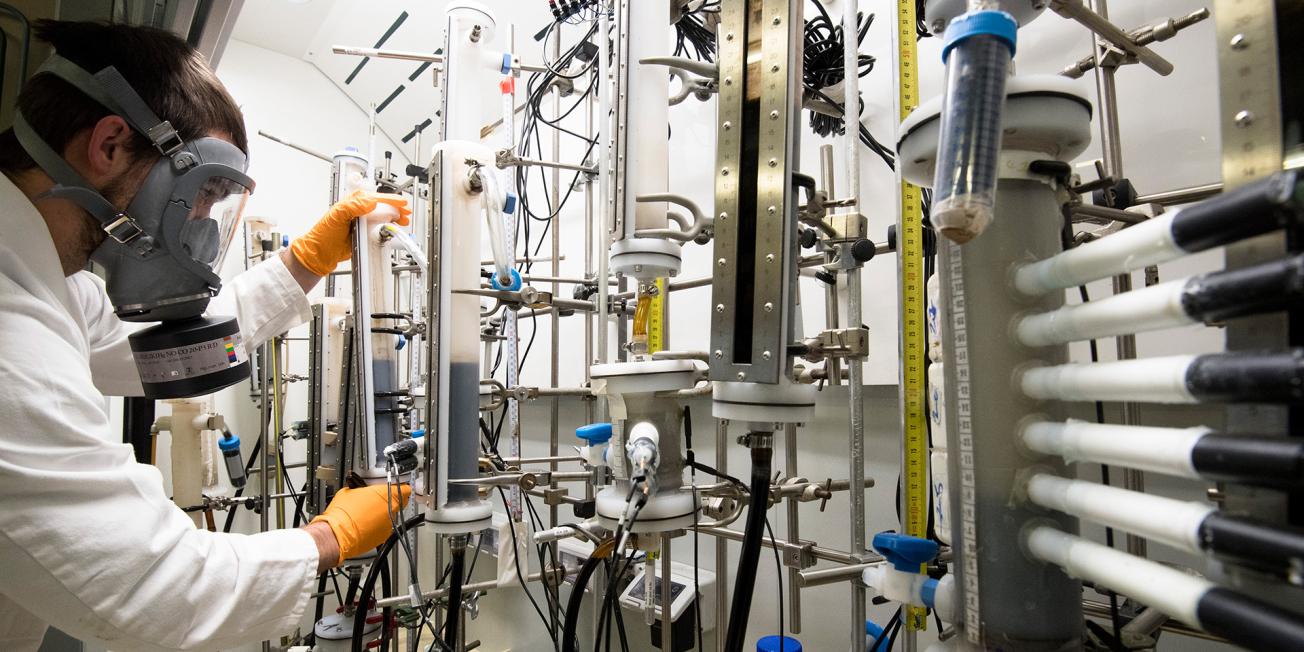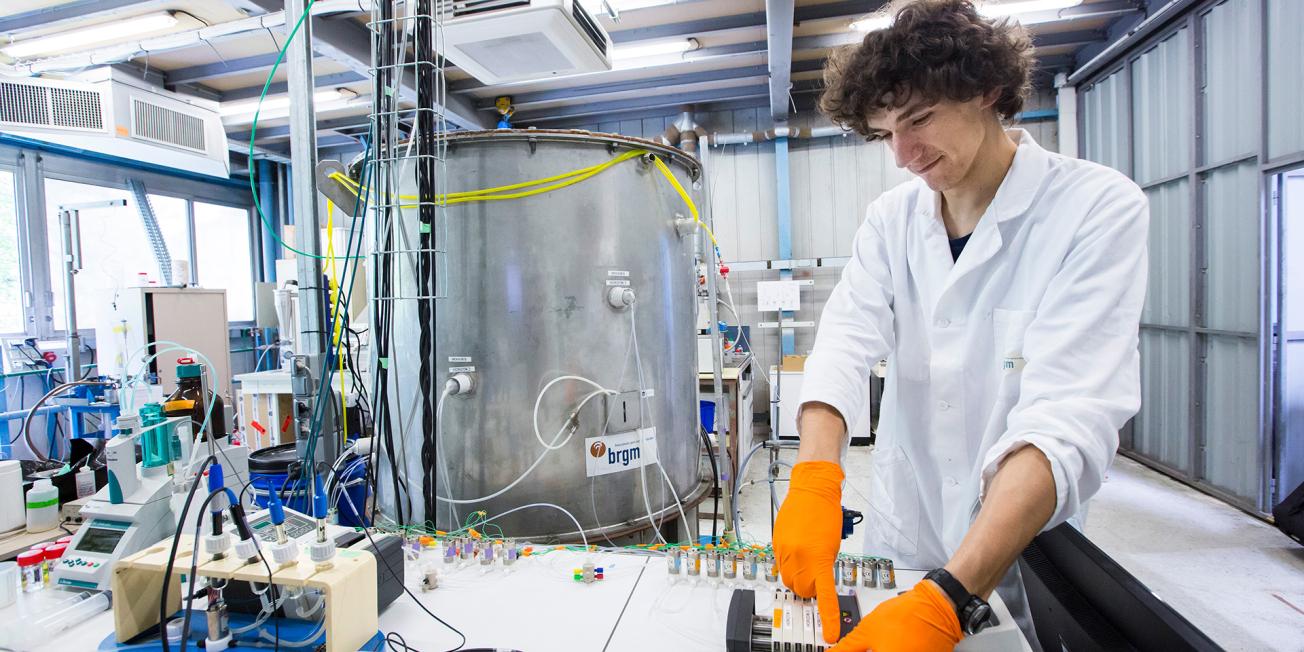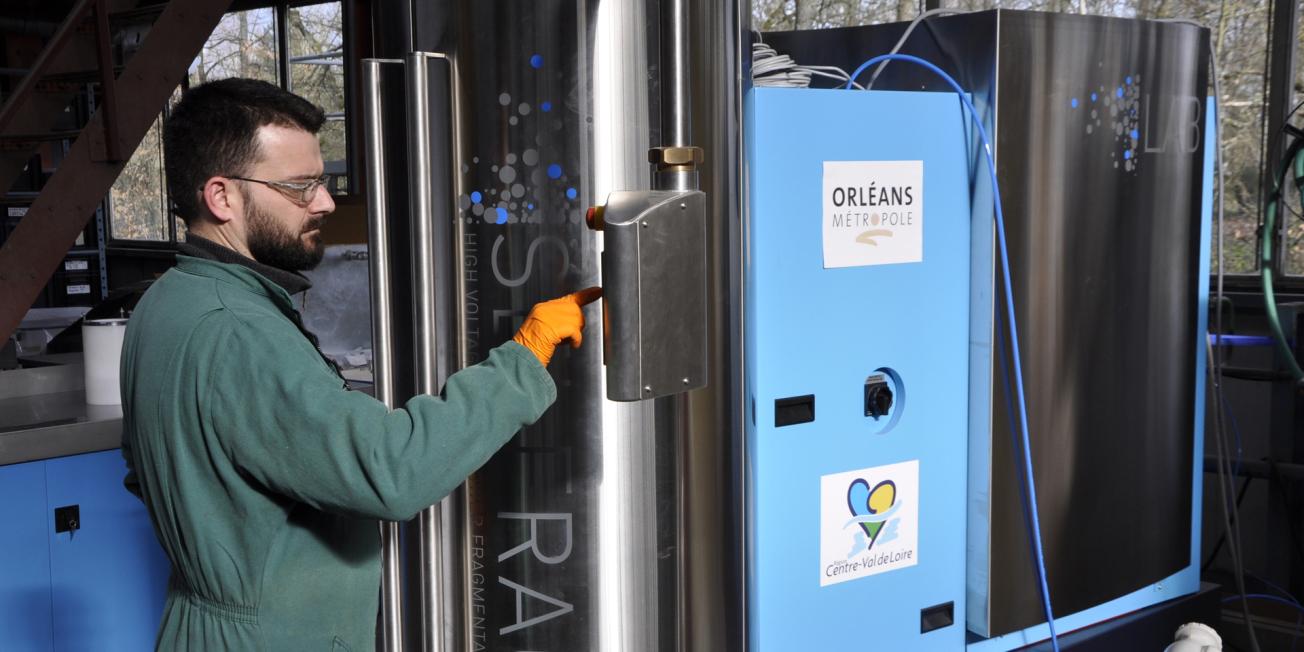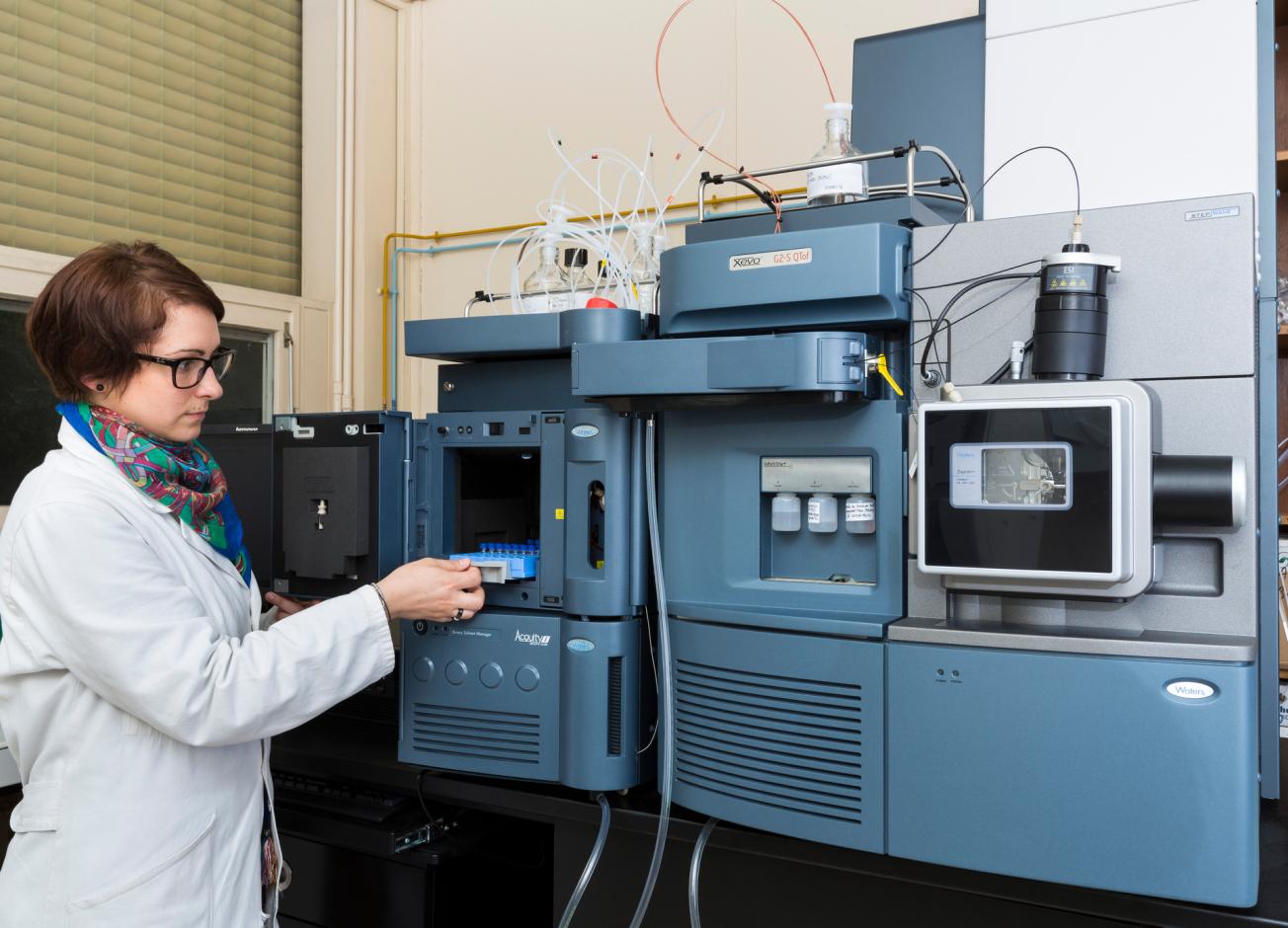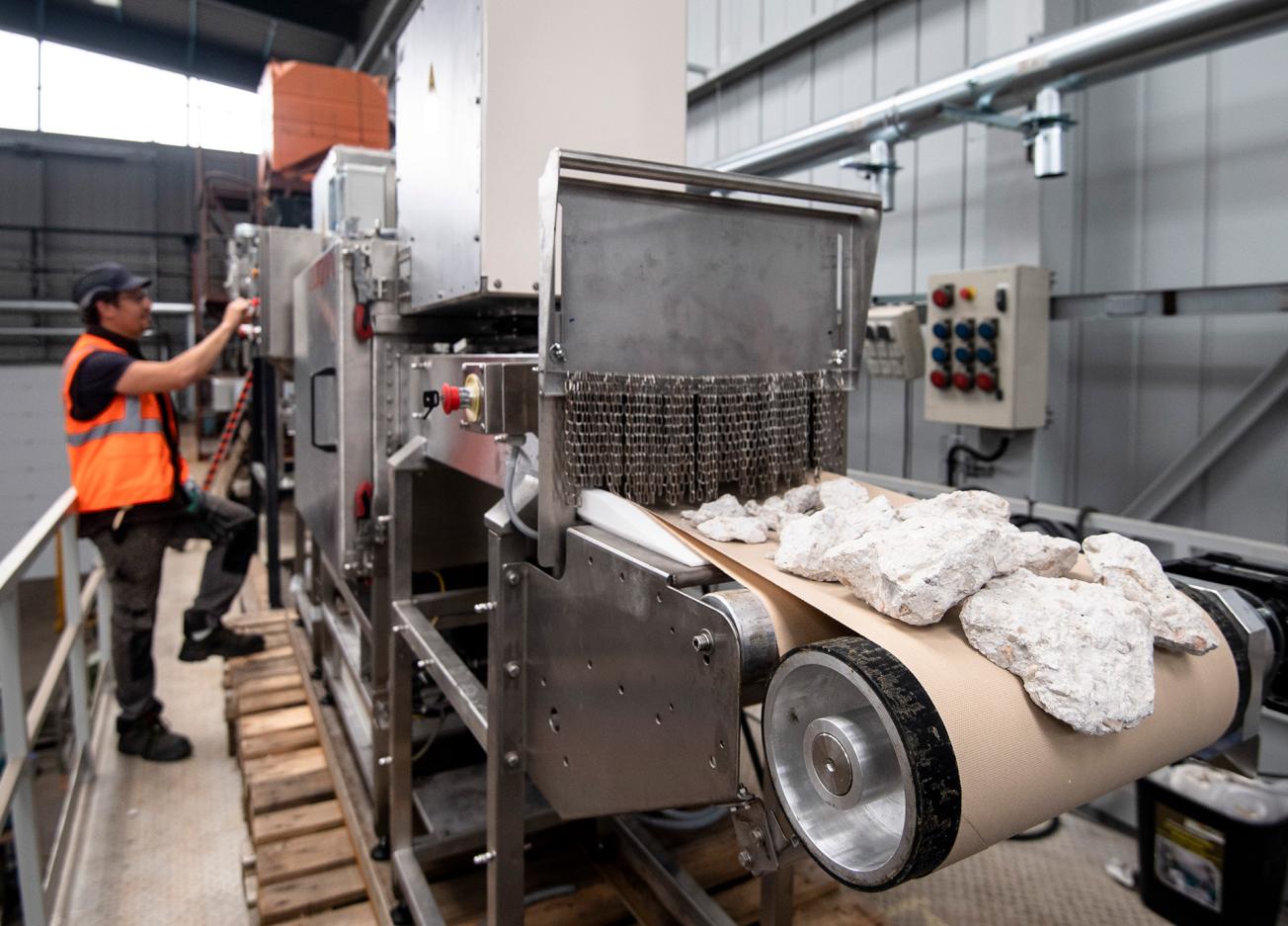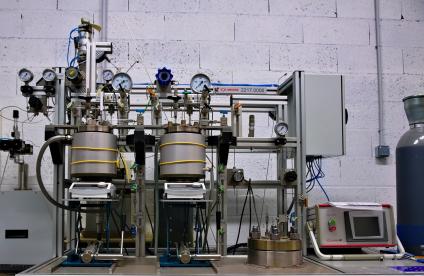BRGM carries out analyses and experiments:
- to enable the rational management of water and mineral resources, by monitoring and optimising their use, recovery and recycling in order to protect such resources in terms of both quality and quantity,
- to ensure the rational management of regions and sites, by monitoring the quality of natural and industrial settings and studying any associated risks for people and the environment, and by contributing to the protection of these areas/sites by implementing bio-geochemical technological solutions,
- to optimise the operational and structural durability of natural or engineered containment barriers for the storage of waste and energy carriers.
BRGM provides scientific and technical expertise drawing on test facilities (that are sometimes the only one of their kind) in the fields of:
- organic and inorganic chemical analysis, covering the detection, quantification and characterisation of regulated or emerging pollutants;
- chemical isotope analysis and the use of natural isotope tracers, in the field of geosciences or for traceability purposes;
- environmental sampling and metrology (soil, subsurface, water and gas);
- mineral, physico-chemical and textural characterisation;
- microbiology and molecular biology;
- multi-scale bio-geochemical experimentation;
- and processes for treating, recovering and storing ores and waste.
BRGM has a wide range of scientific equipment for performing analyses, characterisations and experiments.
Scientific equipment that is being continually modernised
Measurement and experimentation, at the heart of scientific output
Measurement and experimentation are central aspects of BRGM's scientific output. The design, development and implementation of methodologies for analysis, characterisation, experimenting and modelling purposes – whether in laboratories for sub-metric and multi-metric pilot processes or in natural or man-made environments – are all essential components of BRGM's scientific approach, which is focused on providing innovative products and services that respond to societal and economic issues with a view to sustainable resource management.
Drawing directly on its scientific activities and expertise, BRGM plays an important role in the French reference laboratory specialised in water and aquatic environments: AQUAREF.
BRGM conducts its analyses and experimentation for various purposes:
- to support collaborative scientific programmes, on which BRGM works alongside public or private research institutions and consultancies;
- to support local authorities and government departments, in France or abroad
- to provide services under contract to private customers.
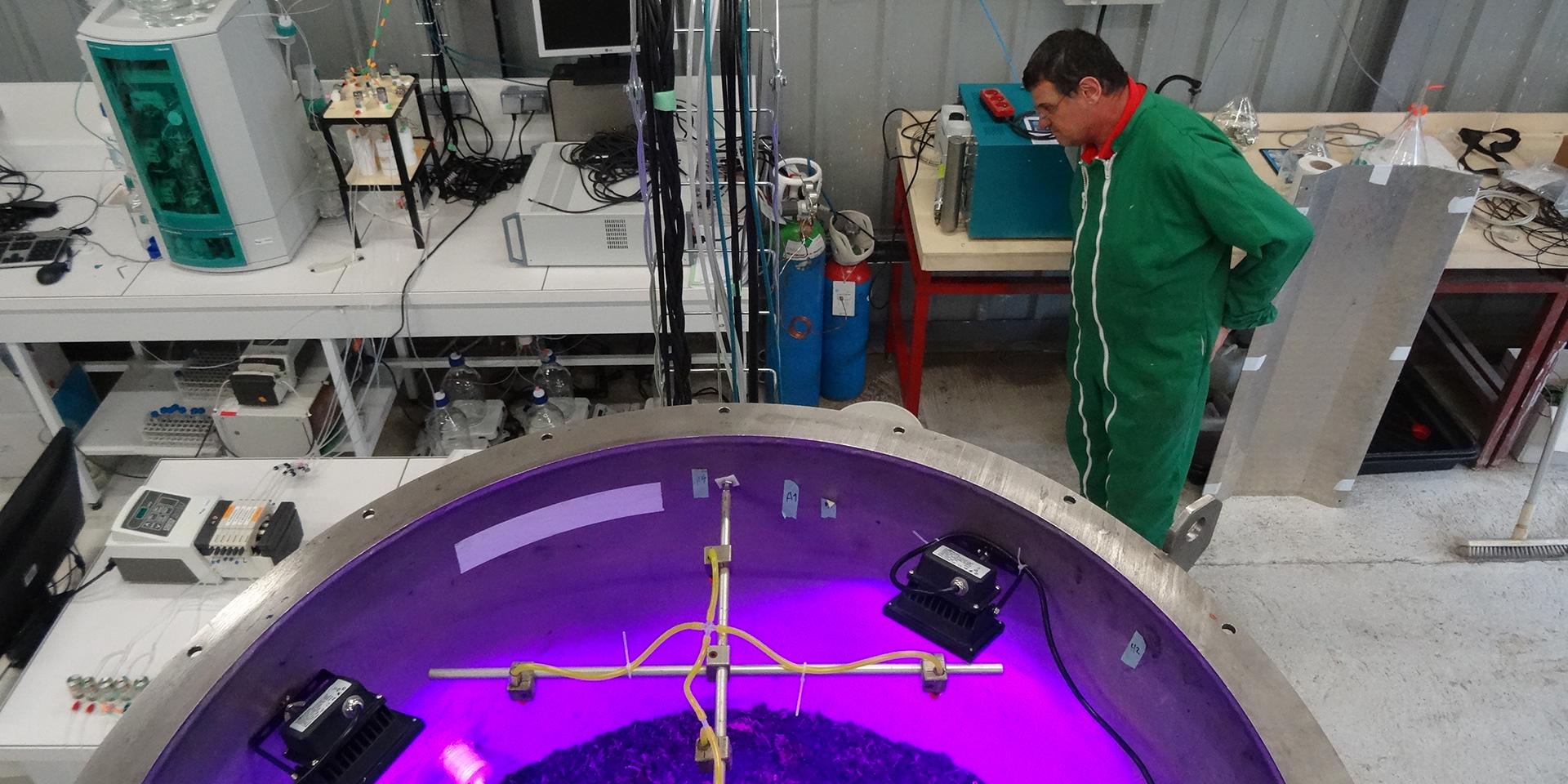
Promoting innovation and scientific value
To ensure the continuous development of its excellence in the field of scientific measurement, BRGM has acquired state-of-the-art scientific equipment, and regularly upgrades these assets. This enables us to launch innovative research programmes and build collaborative partnerships with national and international organisations.
This cutting-edge scientific equipment generates significant scientific value, which is notably written up and published in Tier-one journals and presented at international congresses. Its innovation policy has made BRGM a leader in specific scientific fields. It also contributes to BRGM's attractiveness in the employment market (recruitment of experienced researchers) and in high-level training through research (doctoral and post-doctoral programmes).
BRGM develops and validates new analysis and experimentation methods. The aim is to foster innovation in the field of environmental metrology as well as in analytical and geophysical methodologies.
BRGM's laboratories: wide-ranging analytical capabilities
BRGM's laboratories offer a wide range of analytical capabilities in the field of Earth and environmental sciences, ranging from routine methodologies to state-of-the-art equipment (sometimes the only equipment of its kind in France).
Within its specific areas of expertise, BRGM designs and develops methodologies for the purpose of conducting analyses, characterisations, observations and experiments – whether in laboratories or on pilot sites – in gas, water, soil and subsurface environments.
BRGM uses these methodologies and the corresponding equipment to help provide answers to the different questions that arise from its scientific projects.
One of the main areas is:
Environmental chemistry
The development of tools and methods for detecting, identifying, quantifying and characterising pollutants (including emerging pollutants: triclosan, parabens, bisphenol A, veterinary products, nanoparticles, etc.) in different environmental matrices in order to monitor their behaviour and what happens to them in the environment. Thanks to their high-resolution mass spectrometers (LC-TOF), BRGM's laboratories can detect previously-unidentified molecules in the environment, in order to develop suitable monitoring methods.
Environmental metrology and sensors
The development of tools and methods for monitoring the quality of environments (soil, subsurface, water) impacted by anthropogenic activities and, on a broader level, by climate change.
Isotope geochemistry
Consolidating expertise in source tracing, characterising natural and anthropogenic inputs, and dating of rocks, geological events and natural processes. Special attention is paid to environmental issues (characterisation of pollutants and pollution tracing; environmental forensics) and to the use of cutting-edge tools such as the MC-ICP-MS Neptune.
Mineralogy
Consolidating expertise in the field of mineralogy, the study of crystalline structures and the physico-chemical and textural properties of solid matrices. Special attention is paid to complex materials (post-production and post-consumer waste, cement matrix, etc.). Development of cutting-edge tools such as the MEB-RAMAN platform
Studies in the field of microbiology and molecular biology
Characterisation of biodiversity and the functions of microbial communities in the subsurface, aquifers and polluted environments.
Multi-scale biogeochemical experiments
The development of multi-scale experimental tools to identify and quantify the geochemical and biological mechanisms that control the mobility and transformation of chemical elements, including pollutants, in the environment. These experimental tools are developed, adapted and implemented on scientific projects, in the laboratory and pilot facility as well as during on-site demonstration tests.
Development of treatment processes
The development of chemical, biological or physical processes, in the laboratory and the experimental pilot facility.
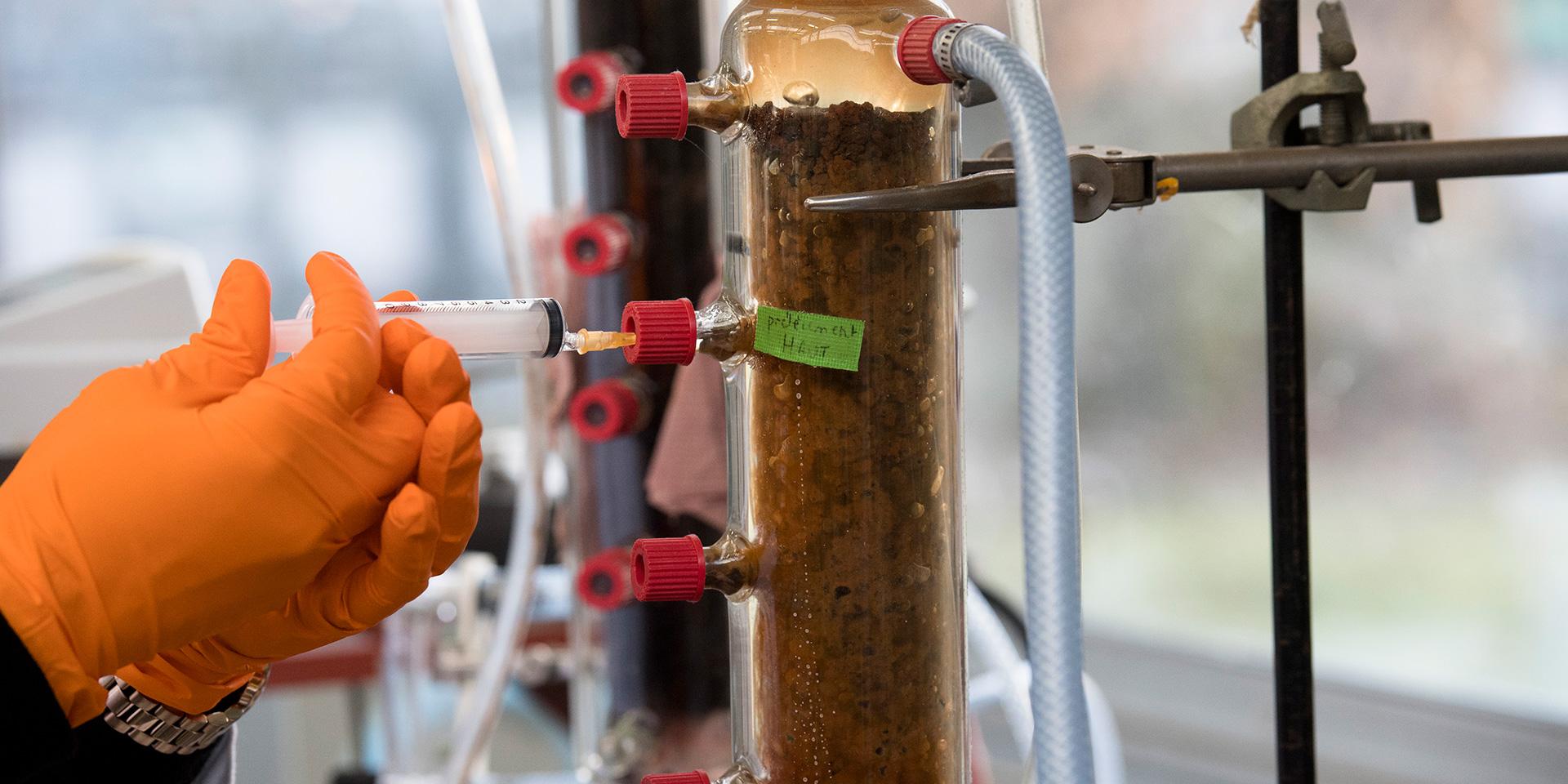
Key figures
-
2000.00m²of laboratories
-
80.00technicians and researchers
-
25000.00samples studied a year
Optimising measurement quality
BRGM works at every level of the analytical chain:
- monitoring networks (development of new samplers and sensors, reliability studies),
- data acquisition (development and implementation of data acquisition methods, isotopes, mineral characterisation, environmental chemistry, including the comparability and reproducibility of measurements, and the development and implementation of methods),
- sampling and analyses on-site and in laboratories,
- experiments in the pilot facility and on site.
BRGM's objective is to optimise the entire analytical chain, with a view to constantly improving the quality of measurements, and to reinforce its related expertise in the application and use of data.
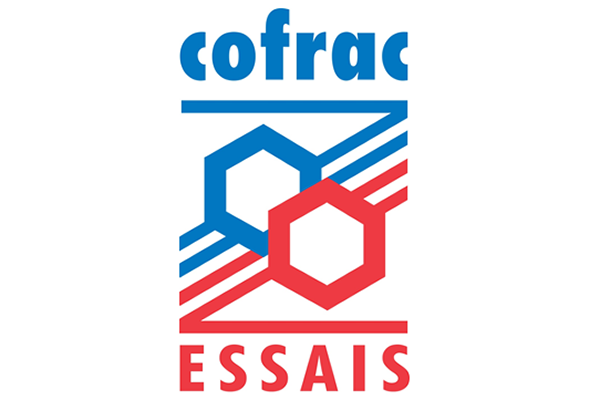
COFRAC logo. Accreditation no. 1-0251 available on www.cofrac.fr.
© COFRAC
COFRAC accreditation of BRGM’s laboratories
BRGM’s analytical laboratories have been COFRAC accredited since 1994 (Laboratories section - Testing Sector), in compliance with the NF EN ISO/CEI 17025 standard for "general requirements concerning the competence of calibration and testing laboratories".
This accreditation covers:
- physico-chemical water analyses,
- analyses of soils in relation to the environment
- sediment analyses,
- the development and adaptation of analysis methods.
COFRAC accreditation is an important mark of recognition of BRGM’s technical and organisational expertise and underlines the quality of its work.
It is also a guarantee concerning the reliability of the results produced by BRGM's laboratories and concerning their independence and impartiality, thus ensuring the comparability of analyses at European and international levels.
Finally, COFRAC accreditation acknowledges BRGM's ability to develop innovative new methods in the field of metrology.
BRGM’s laboratories are audited by COFRAC every year to ensure that the technical and organisational standards are maintained. The accreditation is subject to renewal every five years.

